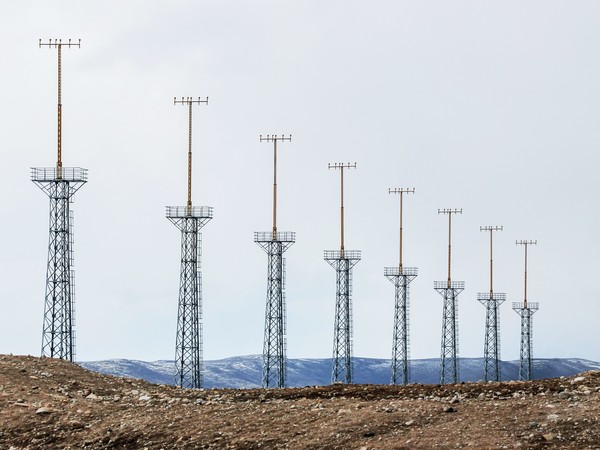
By Jenny Lee WIRED Korea
In April, 2019, 5G mobile networks have finally come to life after much talk about their greatest promises – ultra-high speed, super-low latency and massive connectivity – and what they mean for the future of technology.
There is not a single day that passes without a barrage of headlines about 5G-powered technologies and services. The arrival of 5G has the potential to open horizons for cutting-edge innovations like artificial intelligence (AI), virtual reality (VR), augmented reality (AR) and self-driving cars, and the anticipation is growing for the exciting changes 5G will bring to the way people live, work and socialize.
This is especially true in South Korea, where the world’s first nationwide commercial 5G services started in early April. Now the country's top telecom operators are going all out to grow the 5G industry. Ever since the 5G launch, SK Telecom, KT and LG Uplus have undertaken aggressive marketing campaigns to get more customers to use their 5G networks, which are said to offer wider coverage, stable, simultaneous connections for a massive number of devices and data speeds that are 20 times faster than the existing 4G networks, or LTE.
It seems to have been paying off. Not only is 5G the term on everyone’s lips today, but the number of 5G subscriptions has also seen a rapid growth, surpassing the 3 million mark in late September, according to the Ministry of Science and ICT. The number is forecast to top 5 million by the end of this year, as more 5G-supported smartphones like Samsung’s Galaxy S10 and Galaxy Note 10 and LG’s V50S become available.
But despite all the hype surrounding 5G, complaints are pouring in from early adopters, who say 5G currently offers the opposite of what it promises: slow speeds and patchy coverage.
“A new-level of high-speed connectivity with no delay was what I expected when I switched to a 5G-enabled phone in October,” said Nam Su-min, 29, a Seocho-gu resident who often uses her phone for music and video streaming services. “But what I often see is my phone struggling to connect to 5G in areas other than just a few parts of the city with a large floating population.”
“Bouncing between 5G and 4G speeds also drains the battery of my phone,” Nam added.
Similar connection problems are felt by Park Jin-woo, a 19-year-old high school student in Siheung, Gyeonggi-do, who initially chose 5G for seamless and uninterrupted gaming experiences but now has the “LTE-priority mode” on at all times.
“There is no benefit of using 5G as of yet,” Park said. “In fact, I am quite dissatisfied with the 5G services, which I think are still in the experimental stage.”
Internet performance tests conducted by a U.S.-based analytics firm Ookla between June and August showed the average download speed on 5G networks in South Korea was 393.07 Mbps, which is seven times faster than the average 4G speed of 52.4Mbps, but is far from the three telecom operators’ advertised speed of 20Gbps.
Such performances that fall far short of expectations prove that 5G has not entirely gotten off the ground yet, which can be attributed to an insufficient number of 5G base stations across the country.
As of October, KT has deployed more than 63,000 5G base stations, while SK Telecom and LG Uplus are on track to install 70,000 and 80,000 base stations, respectively, by the end of this year. But the majority of these stations are currently concentrated in Seoul and its surrounding areas and less than 1 percent are located indoors, according to the data from the Ministry of Science and ICT.
With the backing of the South Korean government, telecom operators aim to offer stable 5G services by 2023 by installing 180,000 base stations – which is about 5 percent of the 4G stations in the country. But to achieve 5G’s full potential, more has to be built as 5G frequencies have much shorter wavelengths than those of 4G. 5G works on 3.5GHz to 26GHz compared to 4G's 900MHz, 1.8GHz, 2.1 GHz and others. The shorter wavelength means 5G can carry a larger amount of data much faster than 4G, but it has a much shorter range. The use of 5G frequencies is also more prone to disruption by physical obstacles.
Experts say the switchover from 4G to 5G may come as a long and slow process, but network rollouts have always been that way. With 5G in its infancy, it is too early to start grading it.
“It is still years away from 5G’s nationwide rollout, but I believe its performance will slowly but surely get better by the end of next year,” said Kim Yong-serk, a professor at Sungkyunkwan University in Seoul and former Samsung mobile executive. “It took two to three years to build all the infrastructure for the nationwide 4G coverage, before which users of 4G phones relied on 3G networks to make calls.”
It appears certain that 5G will eventually evolve into essential networks in South Korea over the next few years, driving growth in nearly every industry sector and speeding up the rate of change in the lives of many people. To get ahead of the game, the telecom companies are locked in a fierce competition to be the frontrunner in 5G applications.
Earlier this year, SK Telecom has announced its plan to build 5G clusters – business districts, parks and factories that are equipped with AR, VR, AI and other innovations. It has also launched a VR zone in partnership with major companies such as Kakao and Facebook to provide various content available on its 5G network.
While LG Uplus is working with Chinese Startup Nreal to launch AR glasses in early 2020, KT is expanding its network business with local corporations including Hyundai Heavy Industries and Samsung Medical Center, with a focus on incorporating its 5G network into manufacturing and operation processes.


 뉴스레터 신청
뉴스레터 신청